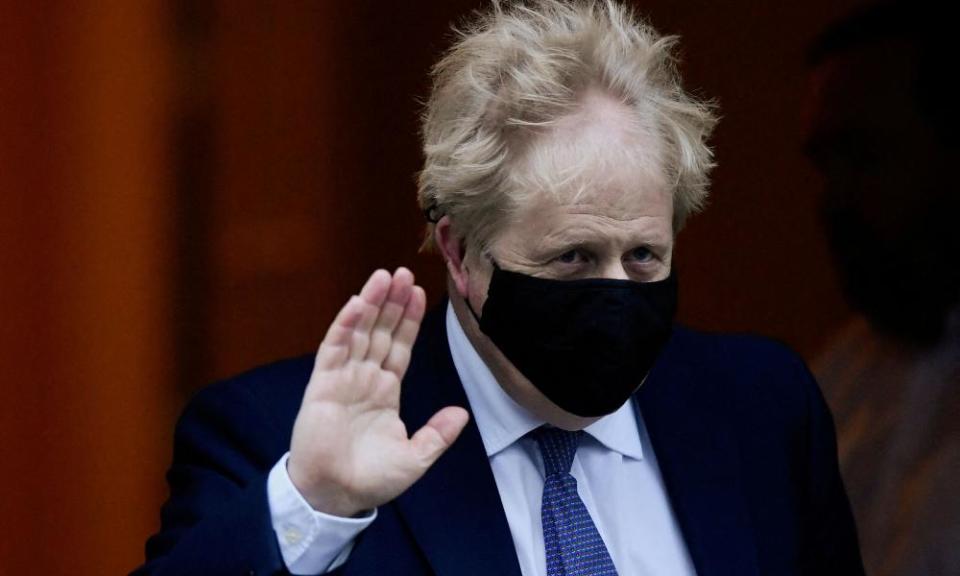Vote of no confidence, resignation or survival: what next for Boris Johnson?

With mounting speculation that Boris Johnson’s days in Downing Street could be numbered, the minds of Conservative MPs – and those inside No 10 – will be turning to how it might all end. Here are the various ways in which Johnson could be out of a job.
Vote of no confidence
Under party rules, a vote of no confidence is triggered if 15% of Conservative MPs write to Sir Graham Brady, the chair of the 1922 Committee of Tory backbenchers, to formally seek one. The crucial number is now 54, after the removal of the Tory whip from Anne Marie Morris for voting against the government, which reduced the total number of the party’s MPs to 360.
If a vote is triggered, a secret ballot of MPs is organised by the 1922 Committee. Should the prime minister gain the support of at least half the parliamentary party, which for Johnson would be 180 MPs, then he would remain in office, and no new no confidence vote can be triggered for at least 12 months.
A visit from the men in grey suits
This was the traditional way in which Tory leaders were quietly informed it was time to go, and the way a successor was chosen – via a closed-doors gathering of party grandees. While this is no longer the case, a Conservative prime minister can still be removed through informal pressure.
Theresa May survived a no-confidence vote in December 2018, and was officially safe from challenge for 12 months. But by the next spring, with rebels attempting to change the rules to allow a new challenge, and after repeated humiliations over Brexit votes, May announced on 24 May 2019 that she would step down two weeks later.
This decision was triggered by a meeting with Brady, who warned May she would face a new no-confidence vote if she did not depart soon.
Resignation
While May was famously dutiful, to use the slightly patronising description of some Tory opponents, and could be something of a parliamentary scrapper when needed, there is speculation that Johnson might not have the stomach for battling a no-confidence vote.
If it became obvious that he had lost the support of many Tory MPs – especially if this message is conveyed plainly by Brady – then the PM might decide to simply step down, and return to an easier life in which he is free to earn considerable sums on extracurricular work, whether as a backbencher or outside parliament altogether.
A resignation triggers a leadership contest. While this took place, Johnson would be expected to stay in his post, although he could theoretically step down in place of an interim leader.
He sticks it out
This is, of course, the other option, and Johnson is nothing if not a politician who regularly defies the normal political rules.
It remains unclear how Johnson could turn things around. He will face a difficult prime minister’s questions on Wednesday, and will attempt to change the national conversation by announcing the end of Plan B Covid measures, with a plea for any final judgment to await the report into various alleged government parties amid lockdown being led by senior official Sue Gray. If that holds, Johnson could busy himself with efforts over Covid and the cost of living and turn to the final hope of any beleaguered politician – a vague hope that something will come up to salvage things.
Join our journalists for a Guardian Live online event on the No 10 lockdown party and Boris Johnson’s future on Wednesday 19 January. Book here

 Yahoo Movies
Yahoo Movies 